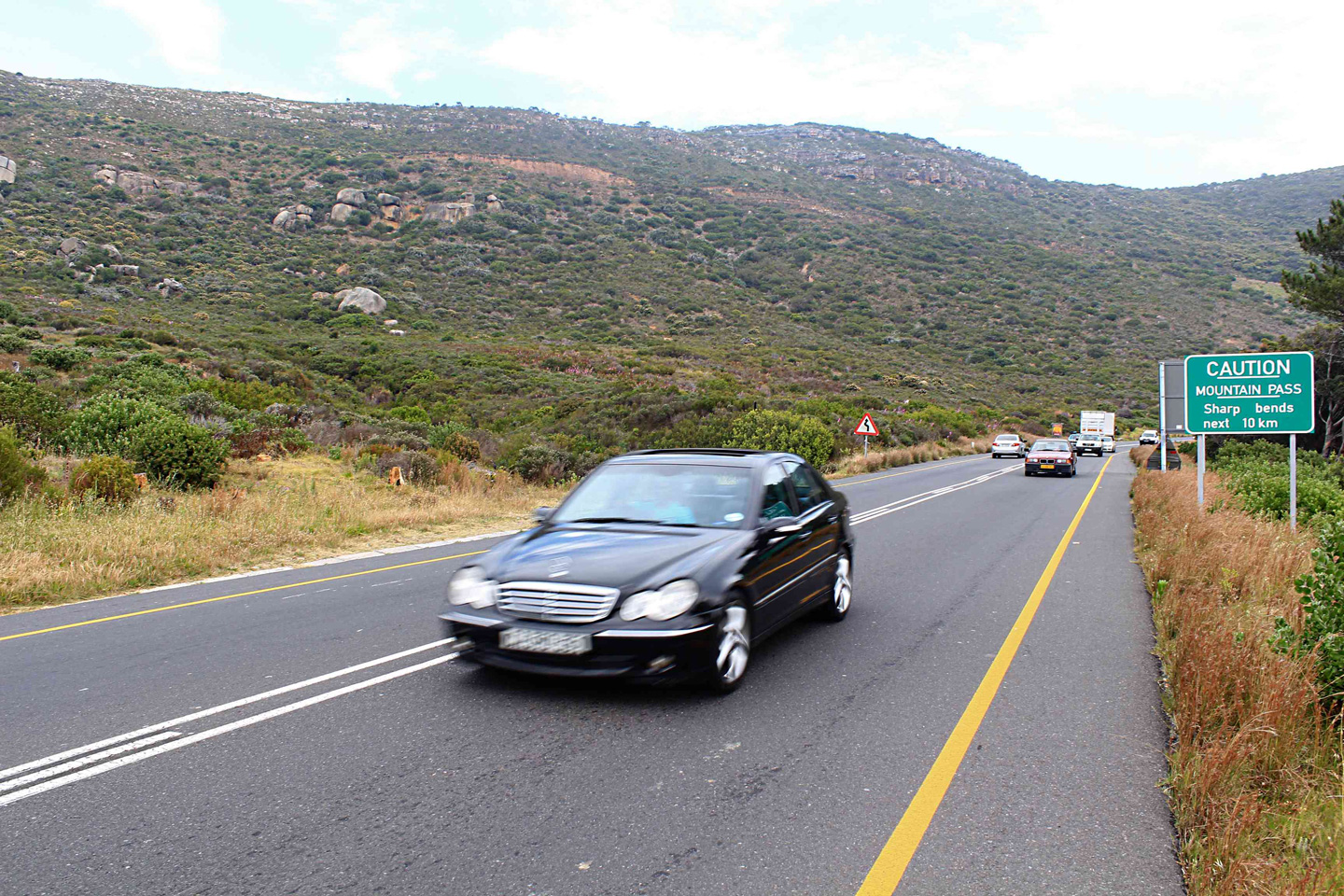
Long Trek to Education for City Students
Everyday, high school students from the townships of Westlake and Capricorn trek 15 kilometres to Masiphumelele High school.
This means having to hitchhike over Ou Kaapse Weg. Yet there are several much better resourced state schools that are much closer and easier to get to.
Thembakazi Gonya and Siyabulela Ntsaluba have been attending Masiphumelele High for more than three years. Whether it’s raining or the sun is shining, they join other school mates who stand along Ou Kaapse Weg hoping to catch a ride to school.
Gonya is a grade 12 student. She walks from her home in Westlake township for about 20 minutes to the hitchhiking spot. She can stand to up to three hours sometimes without getting a lift.
“Some days are very quiet. We stand for a long time and sometimes we have to show money even if it’s a R10 note for a car to stop and give us a lift,” says Gonya.
Masiphumelele High is 15km away from Westlake township, and the most direct way to get there is over the mountain pass. At least five better resourced state schools are closer though and do not involve crossing a mountain.
Zwaanswyk is only 4.5km away. Crestway is 6km away. Muizenberg is 7.5km away. Bergvliet and South Peninsula High are about 9km away. And Fish Hoek High is a former model C school that is about the same distance as Masiphumelele.
But the closest school is a private one, Reddham, about a kilometre away as the crow flies, but about 4km by road.
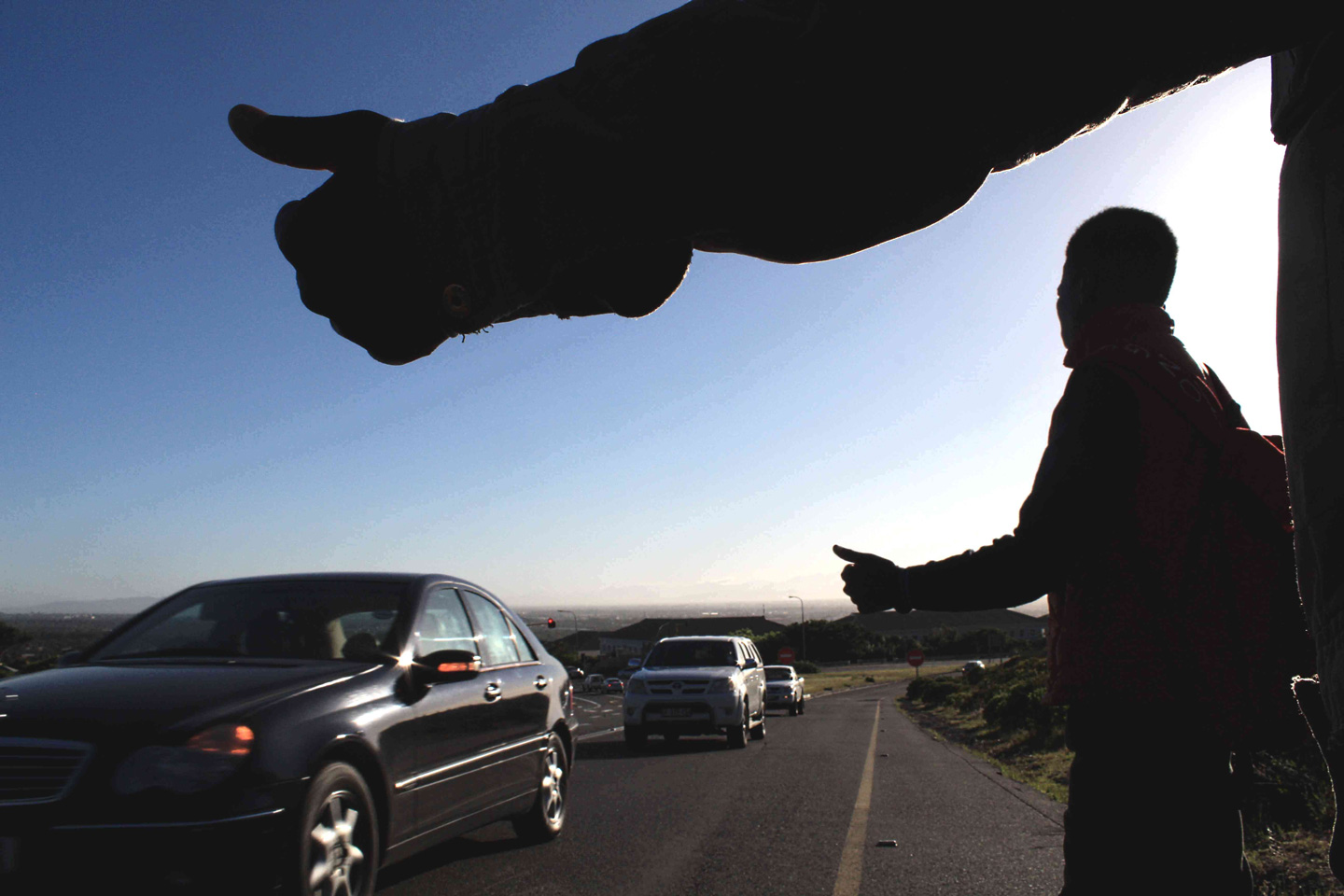
Siyamkela Salupa, 18, explains why she has to go to Masiphumelele. “There are no school fees. I can't afford the other schools, I have siblings and we are all supported by one person.”
Masiphumelele High School is a no-fees school. These are generally township schools that cater to poorer kids. They are usually under-resourced, and Masiphumelele is no exception.
Doron Isaacs from education social movement, Equal Education, says that once a child is admitted to a fee-charging public school, the child has a right to apply for a fee exemption.
"However, the difficulty most children have is getting admitted to such schools in the first place. Schools informally assess whether someone is likely to want an exemption, and admit or reject accordingly,” Isaacs explains.
"The above flows from the fact that the SA Schools Act grants school governing bodies the authority to determine admissions policies and fees, unless they're declared no-fee schools. However, in the Rivonia case, the Constitutional Court said that provincial departments and school governing boards are constitutionally required to balance this against the interests of the wider community, because these are public schools," says Isaacs. "Sometimes schools craft feeder zones based on their desired student body. There should be regulations that guard against that, because such practices reinforce the Group Areas Act, which our democracy is working to undo."
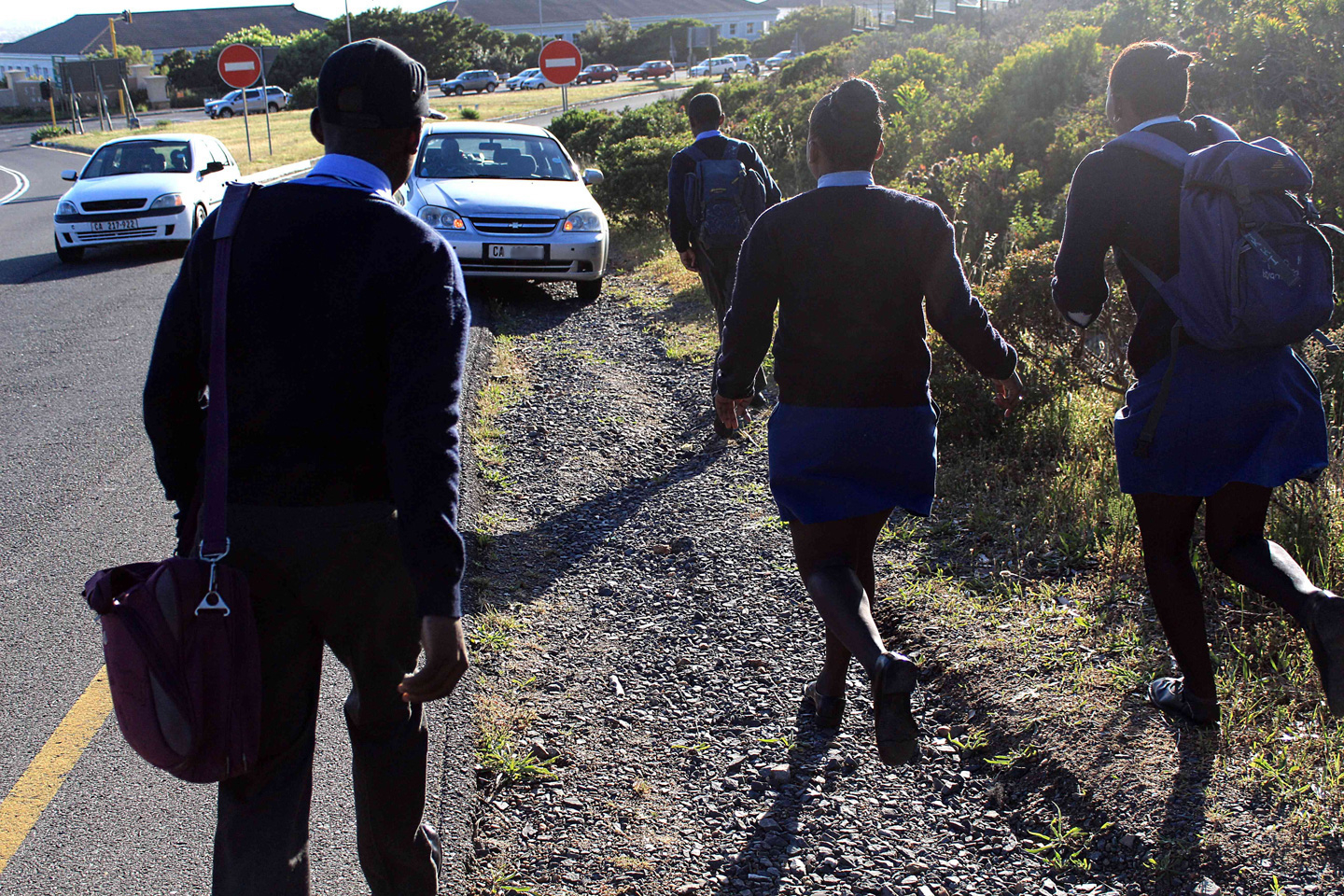
School fees are not the only reason why these students trek across the mountain. Gonya says she moved here from the Eastern Cape. “I had only done Xhosa and English so when I applied at Crestway High I had a problem with Afrikaans because I have never done it before. And because I was scared of failing I decided to move to a school that had Xhosa and Masiphumelele was the closest school for me.”
This reason was echoed by other children we spoke to.
Isaacs says, "The SA Schools Act also grants schools the right to determine language policy. Schools must offer a second language, and in many cases this is either English or Afrikaans. To get beyond this, Minister Motshekga has recently spoken about making the teaching of a black African language compulsory as a third language. This is socially desirable, but carries obvious demands from an educational, financial and human resource perspective."
A parent, Noduma Sosayi, cited the language barrier as the reason she sends her child to Masiphumelele instead of closer schools. “I also work that side and have to spend R720 a month for transport, I can't afford to pay for both of us, I am a single parent supporting two children,” she says.
Masiphumelele school principal, Mncedi Nelson Mafrika, says they have applied a few times to the education department asking for transport for students coming from Westlake and Capricorn but have they not received any response.
Yet Department of Education spokesperson, Jessica Shelver, says that the policy of the Western Cape Education Department is to provide transport to learners living in poor communities who live more than 5km from their nearest school, and where public transport is not available.
She says that an application for a new route to Masiphumelele High School was received and discussed on 9 October by the Bus Committee.
“The Bus Committee has denied the application for transport saying Masiphumelele High School is within the city metro and it is therefore the parents’ responsibility to provide transport for the kids,” says Shelver.
Nearly 80 students attend Masiphumelele from these two townships, without transport being provided.
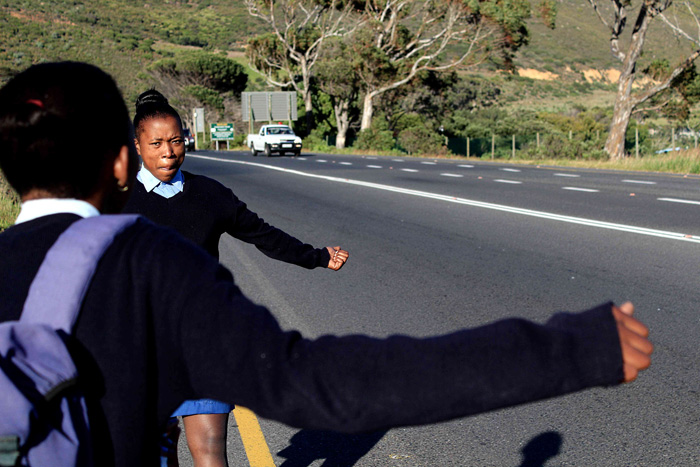
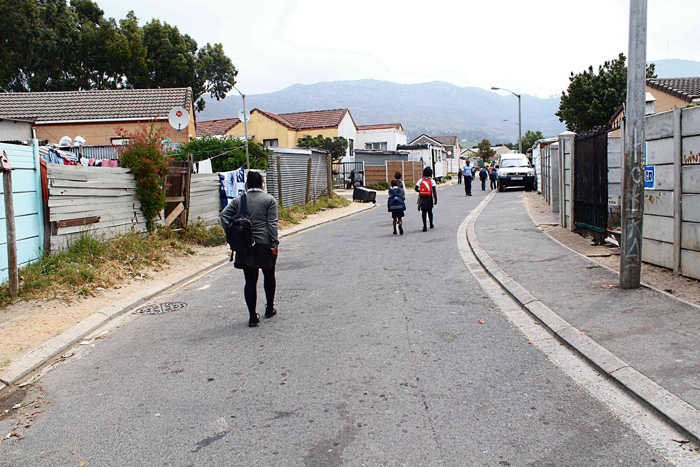
Eighteen-year-old grade 10 pupil Siyabulela Ntsaluba says, “This is a big challenge for us to get a proper education, because we miss a lot of early morning class time.”
“We also find that the teachers are not sensitive to the difficulties we face in travelling to school. Instead of allowing us to fall in with the class, they often punish us by making us do ‘frog jumps’ in front of our classmates.”
Ntsaluba complained about getting robbed on the side of the road while hitchhiking, especially in the afternoons when returning home from the Fish Hoek side.
“We hear that other schools have busses for their pupils who live far away. Why can they not get one for us? There are many pupils who live in Capricorn and Westlake.”
Mafrika agreed that the pupils are exposed to risks to their safety because of the hitchhiking. Earlier this year a girl was sexually assaulted and narrowly escaped being raped by a man who had given her a lift, he said.
“Apart from the danger, there is a high dropout rate especially in winter. Many of the pupils, especially those coming from Capricorn, have to secure two or three different lifts to make the full journey from home to school.”
Ntsaluba says he hitchhikes even when it rains, risking illness and water damage to his books, because he did not want to fall behind in his lessons.
It typically costs each student coming from Westlake over R320 a month in transport. For a child coming from Capricorn it is more than double this.
Some students complained that even Masiphumelele teachers who drive over Ou Kaapse Weg do not pick them up, even if the car is empty.
"It’s not the teachers’ responsibility to transport children. They should leave home early to make it to school on time," said Mafrika.
Attempts were made to get comment from the principals of two well-resourced schools near Westlake and Capricorn townships. Neither responded.
Photos by Masixole Feni.
Tweet
